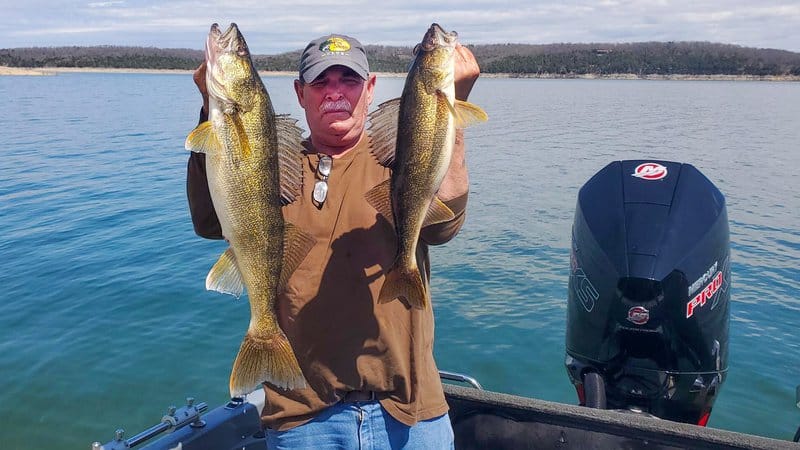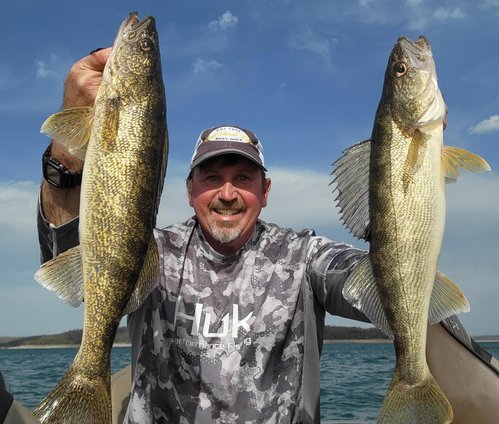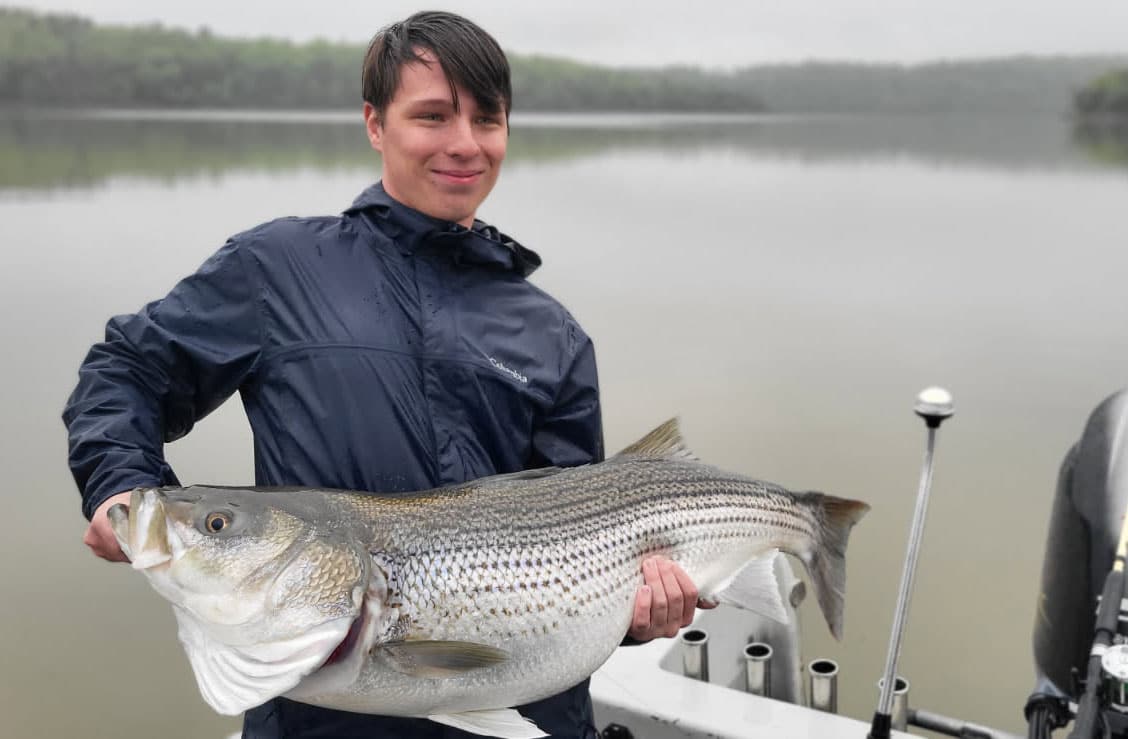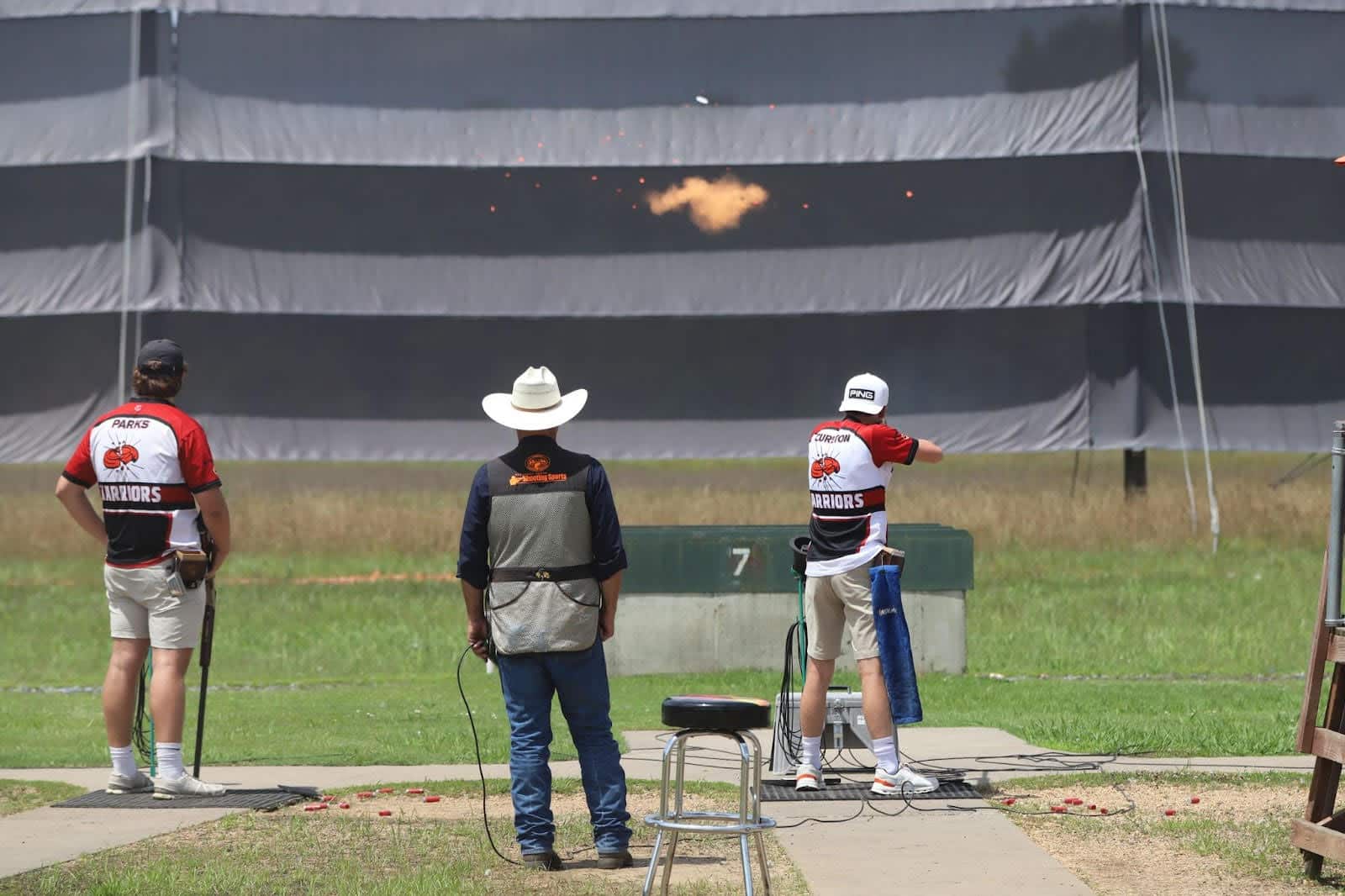Walleye production high on Bull Shoals, Norfork lakes
BY Jim Harris
ON 05-04-2022

May 4, 2022
Jim Harris
Managing Editor Arkansas Wildlife Magazine
MOUNTAIN HOME – High-water events in recent years are paying off in a big walleye bite on Bull Shoals and Norfork lakes in north Arkansas, not only this spring but for the last several years, according to anglers from local fishing clubs, resort owners and guides on the lakes.
Members of the Twin Lakes Walleye Club, which provides regular dissolved oxygen and water temperature research that is being used by the Arkansas Game and Fish Commission on Bull Shoals, are having an excellent walleye season, which hits its peak from April until early to mid-fall, according to club president Don Thomas.
Jeremy Risley, AGFC Fisheries supervisor for the district based in Mountain Home, said, “Our last sampling effort for walleye on Bull Shoals and Norfork lakes was in 2021. Yes, our results look similar to what the walleye club’s members are catching. There are a lot of walleye in both lakes.”
Risley says the overall catch per unit effort of fish at least 18 inches from the 2021 sample “Were well above the long-term average.”
Risley noted that the lakes have had more high-water years from 2010 to now than they had in all the years from 1945, when impoundment began at Norfork Lake, to 2010.
Thomas, who relocated to the lake from Houston eight years ago, said, “What we also see, and what Jeremy says, is that about three years from a high-water event, you start seeing bigger and healthier walleye. So, with five of the past eight years being high-water events, you’re seeing multiples of three,” Thomas said, adding that he caught his first 8-pounder in Bull Shoals’ high water last summer.
High water allows walleye to spawn in areas they typically wouldn’t reach – where grass and brush normally would be above the water in a normal year. Those areas are as much as 16 feet underwater. Mature walleye can find baitfish in these newer surroundings, and more eggs can survive up high away from predators during the later winter and early spring spawn. The cover offers plenty of protection the fish would not ordinarily find with the lake at normal height.
According to the research the walleye club had found, walleye typically prefer a water temperature ranging 55-70 degrees and a dissolved oxygen level between 5 and 10.1 parts per million. In April and May, while the temperature is mild, anglers will find that walleye are closer to shore, Thomas said. “They have to find food. What are their food sources at their comfortable temperature and depth? We consider that in finding the walleye.”
Walleye will chase baitfish like shiners in the lake in spring, “but as the temperature goes up, like a catfish they like to feed off the bottom,” Thomas noted. “They’ll start eating the crawdads, earthworms and things feeding off the bottom, instead of just having a diet of the shiners swimming around. That’s not to say they won’t pass up a good minnow, though.”
The daily limit for walleye in Bull Shoals, Norfork and Beaver lakes and their tributaries is four, and anything less than 18 inches must be released. Twin Lakes Walleye Club members this year have been routinely catching walleye in Bull Shoals that are 19-22 inches long, said Thomas, who regularly tracks all the members’ fishing reports submitted to the entire club, whose numbers are around 300.
Read more about the walleye on the twin lakes and the walleye club’s research, as well as the work of the Norfork Lake Striper Club, being provided to the AGFC in the May-June issue of Arkansas Wildlife magazine. To subscribe or read past issues, visit https://www.agfc.com/en/resources/arkansas-wildlife/magazine/
Recent News

Arkansas Wildlife Weekly Fishing Report
Apr. 24, 2025

Contenders take aim as shooting sports regionals begin
Apr. 23, 2025
Subscribe to Our Weekly Newsletter E-mails
Don’t miss another issue. Sign up now to receive the AGFC Wildlife Weekly Newsletter in your mailbox every Wednesday afternoon (Waterfowl Reports are published weekly during waterfowl season and periodically outside the season). Fishing Reports arrive on Thursdays. Fill in the following fields and hit submit. Thanks, and welcome!
